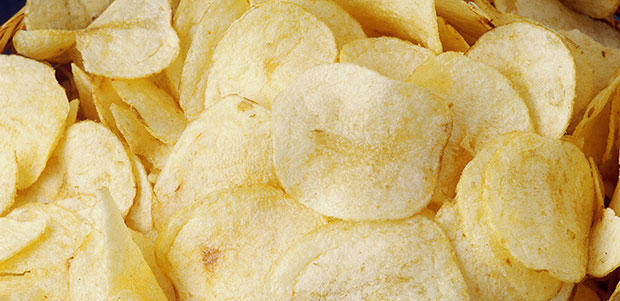2. A brain hormone prompts you to reach for higher-fat fare. Ever wonder why some people seem perfectly satisfied with a bowl of salad while others would much prefer a burger and fries? Turns out a hormone deficiency in the brain could be to blame. In a new Rutgers Robert Wood Johnson Medical School study published in the journal Cell Reports, researchers found that low levels of a hormone called glucagon-like peptide-1 (GLP-1) in mice led them to overeat—and they preferred high-fat food. Sufficient levels of GLP-1, which is secreted from cells in both the small intestine and the brain, signal that we've eaten enough.
Outsmart your brain: Get enough sleep. A drug recently approved by the US Food and Drug Administration mimics the GLP-1 hormone and is being used as a treatment for obesity. But you can boost your levels (and avoid potential side effects such as pancreatitis, gallbladder, and kidney problems) by making sure you're getting enough shut-eye. One recent study published in the American Journal of Human Biology found that inadequate sleep alters the secretion of the hunger hormones, causing you to feel hungrier and overeat. Aim for 7 to 8 hours a night.
(Want to get in shape but don't have time for the gym? Check out Prevention's new Fit in 10 DVD; it's packed with super-effective 10-minute workouts you can do in your living room.)
 Photograph by Getty Images/Art Stein
Photograph by Getty Images/Art Stein
3. A high-cal diet actually rewires your brain circuits, encouraging overeating. Let's face it: Eating is pleasurable. In fact, research shows it ranks right up there with sex and even addictive drug use. That's because eating can trigger the release of dopamine—the feel-good hormone that lights up the reward center of the brain—prompting us to continue to seek out the behavior that's making us feel so good. According to one new study, published in the journal Nature Neuroscience, rats who gorged on tasty, high-fat treats like bacon, sausage, chocolate, and cheesecake quickly became dependent on large quantities of these foods to feel good—similar to drug users who need to up their intake over time to get high, according to the researchers. The rats actually became so dependent on those high-fat foods that they found them hard to quit even after they were given mild electric shocks to dissuade them from the unhealthy fare.
Outsmart your brain: Scale back on high-fat foods. This is particularly important when it comes to ones that are also high in salt and sugar (we're looking at you, potato chips). Research shows this combo actually stimulates our brain to crave more.
 Photograph by Getty Images/Jamie Grill
Photograph by Getty Images/Jamie Grill



